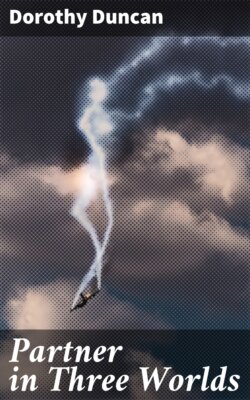Читать книгу Partner in Three Worlds - Dorothy Duncan - Страница 17
На сайте Литреса книга снята с продажи.
CHAPTER XII
○
ОглавлениеTable of Contents
TIME ticked itself off by days and weeks and years. Yet, in the way of a boy, it seemed a static element to me. It was here and now. Today was today. Yesterday was ages past and tomorrow was unknown. This moment, this hour, was time. It was mine. Who cared for anything more? One day was my birthday and I was ten. Another day was my birthday and I was eleven. Ten and eleven were names Mother gave me for those special days. They were meaningless as applied to anything but myself. When I was twelve, twelve was a thing to be. There was no thirteen; there would never be a thirteen. When I was thirteen, thirteen was a thing to be, and twelve was forgotten. There were no brothers and sisters to remind me of how it had been or how it would be. Grandmother was ancient, Mother was ageless, and now was time, and time was myself.
My world was still a place primarily of action, and my questions were still concerned with the how of my environment and the what. It would be some years before the philosopher’s why overrode other queries in my mind’s attempt to relate myself to mankind in a larger sense. There was a hunchback who sold papers on the corner, the doctor behind the door, the woman who owned our house but never entered our room; there was Grandfather whom I had never met, and the beautiful people who rode by our windows in their new horseless carriages. Each had a place in my world, but I made no attempt to classify them. There were also activities like doing my lessons, and running errands for Mother, and scuffing dead leaves along the pavements, and counting gray horses. These were things to do.
I was lonely, but I never thought about it. It was only afterward that I could look back and tell myself how it was. None of the boys in my neighborhood ever wanted to play with me because I was different. They knew it and I knew it. I spoke well, like my mother, and that was different from the way their mothers spoke. So I was separated from them for reasons I could see but not understand. The boys at the nonclassical school wouldn’t play with me, either, though I talked as they did. I still lived in the wrong section of town.
Independence of human companionship had been forced upon me early, and by the time I was twelve I had come to take it for granted. In the place of friends, I depended upon countless new experiences to elicit wonder and make my own. There was rhythm and design, for instance, though I never thought about them in the abstract. I found them everywhere. First there had been Mother’s designs, which I tried to copy before I could hold a pencil alone. There was the wind in the tree outside our window, and the pattern of coal-blackened wheels on the road below. And there was swimming, which I loved above everything else.
I had learned to swim in the muddy reaches of the Vltava before I was eight years old. I called it the Moldau River in those days, because all place names in Prague were German, though Mother had taught me to think of the old Bohemian town by its Czech name of Praha, which means “threshold.” As a stream, the Vltava was undistinguished, but it was the spinal cord of the old city, lovingly laced by a string of beautiful bridges. There was no other place I preferred to be from early spring until late autumn, whenever I could steal an hour or so for my own. One could watch fishermen along its slimy banks catching finny creatures which only a boy would consider worth pulling up on a bent pin. There were always barges being marshaled downstream by officious tugs, carrying produce from beyond the hills to the Elbe and so to Hamburg in Germany. There were boatmen to talk to while they sat lazy in the sun and dreamed of younger years at sea.
When the days were warm enough I would strike out rhythmically across the water, feeling the response of my muscles as I spurted beyond the path of an oncoming string of empty barges. Well out of their way, I would roll onto my back and stretch out to float while the sluggish river carried me downstream at its own pace. Over one shoulder I could see the Hradčany, rising steeply on the Malá Strana side. Copper domes and pointed spires stabbed into the sky, and the bells in their old towers clanged and echoed the hour. Over the other shoulder the dark buildings of the Staré Město rose heavily from the water’s edge. Ahead of me I could watch clouds puffing above the plateau of the Vyšehrad.
I would swim again, conscious of my strokes sluicing evenly through the water, bending it away from my head. The sun would hit my hands as they came out of the water and sliced back again, and my body rolled with the strokes. I loved the rhythm of my own motion, as I had loved the designs growing under my pencils when I was a small boy. Tired of swimming, I would float again and think about myself. I was held in a cradle of water hung between the hills on either side. Space was a new extension of time out here. Gravity was circumvented, and I felt lord of myself alone.
